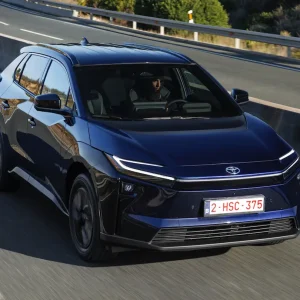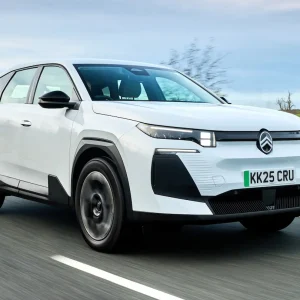…BACK TO START OF PRIUS REVIEW
Thanks to a 99PS 1.8-litre petrol engine coupled to a 37PS electric motor the car’s total power output is 136PS. The result is a driving experience doesn’t purely focus on economics. As well as the electric only mode, you can choose from three different driving modes – Eco, Normal and Power. Even in Power it is not a wildly exciting drive, but it is still capable of accelerating from 0-62mph in 10.4secs. The steering is also precise, and the car is easy to manoeuvre.
Inside, a host of new gadgets are available, including a head-up display that’s standard across the range. A parking assist function is offered as standard on the range topping T-spirit trim, along with satnav and keyless entry and start (making the car simpler to start than the previous generation). Despite the additions, the prices have stayed the same as the outgoing version, and it is in some of the trim that you see where the savings have been made. The plastics feel hard and cheap to touch, although they do not detract from an attractive interior.
Boot space is only marginally compromised with such a large amount of technology to fit in, but a 445 litre boot is good for the class – the Insight has only 408 litres. Rear headspace and legroom are also impressive. Toyota has made the front seats thinner and flattened the floor in the back to help with this.
The only thing that counts against the Prius is its price. A £21,155 P11D means it loses on costs to its Insight rival, but comes out better than similar sized diesels. But the everyday fuelling costs and practicality make the Prius a sure fleet winner.
|
||||||||||||||||||||||||||||||





